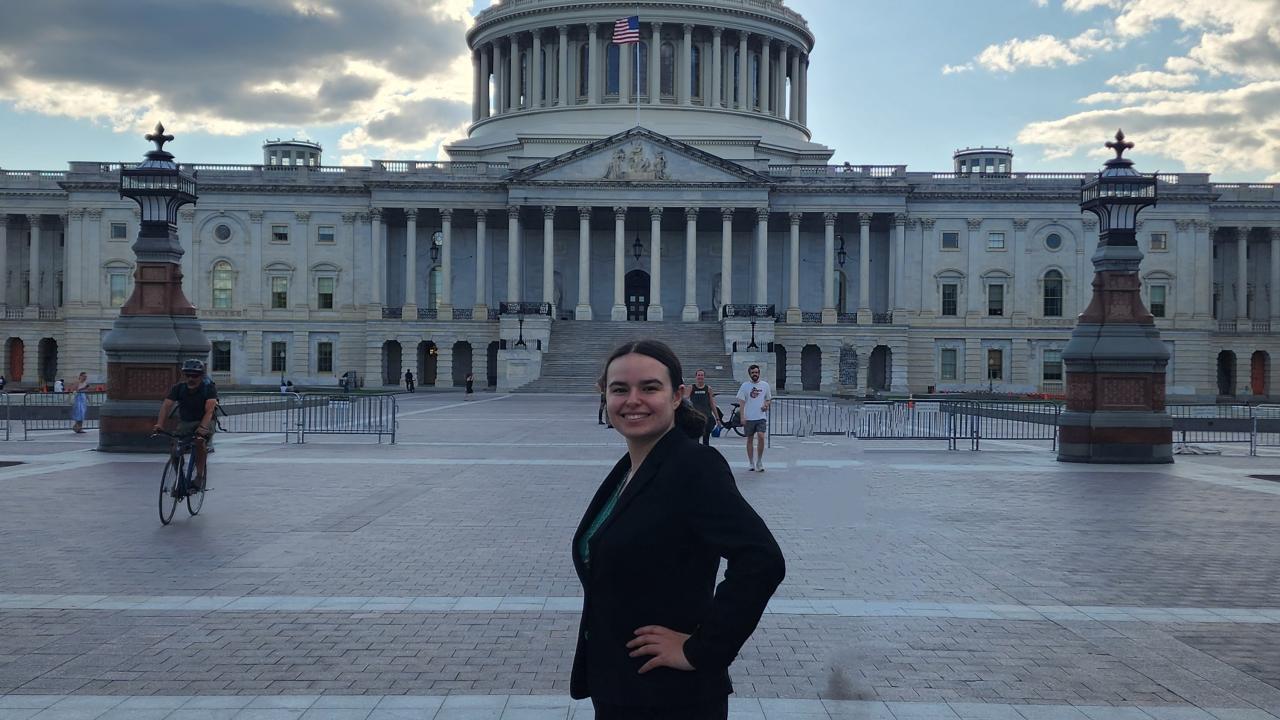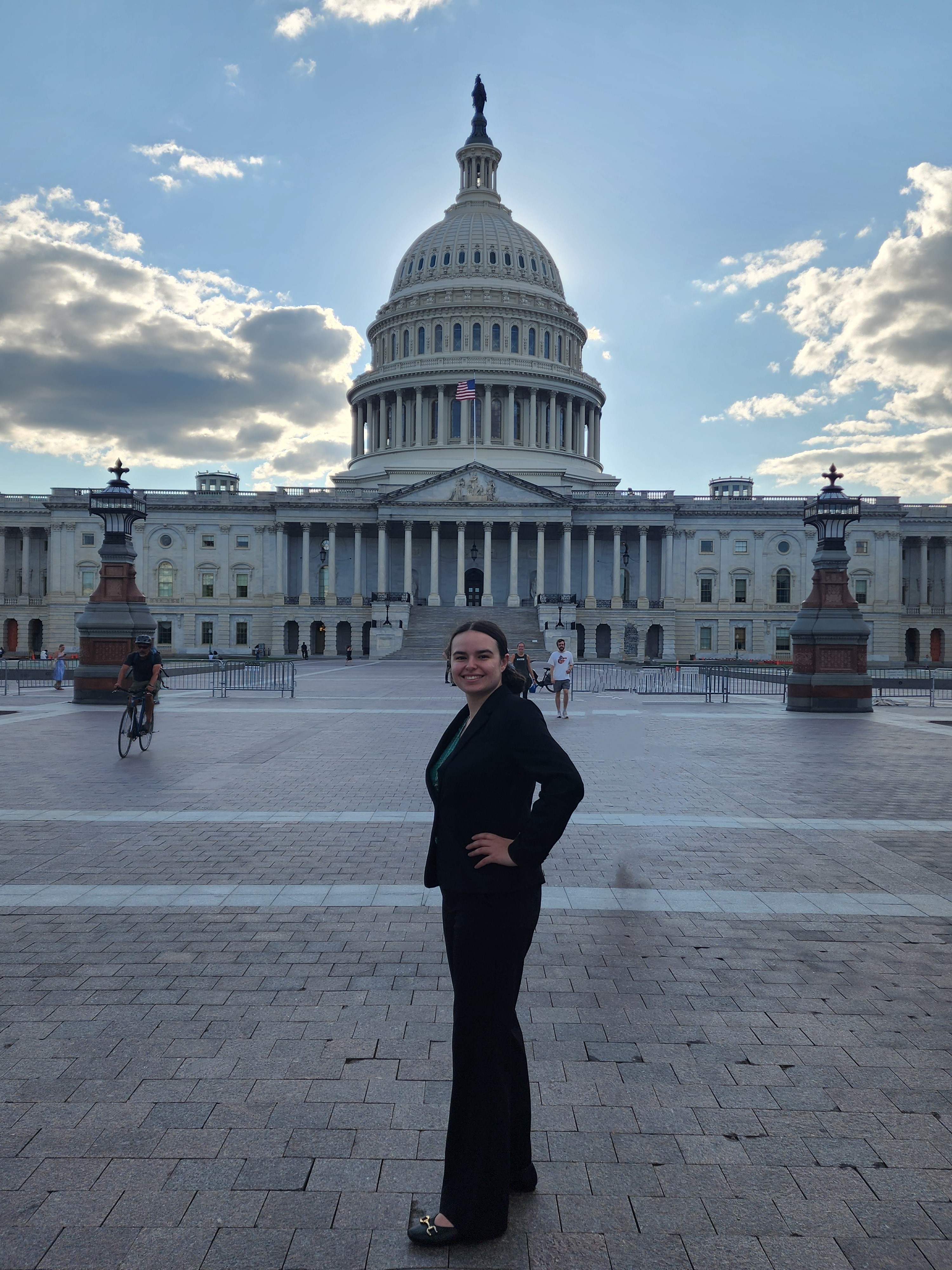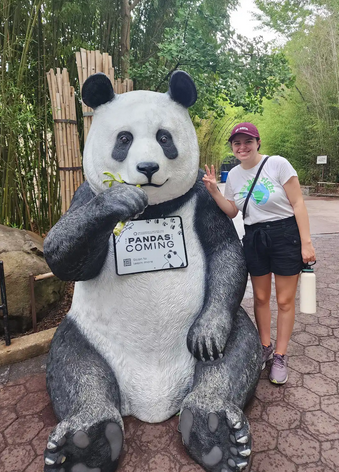
Mara Miller
Major: Sociology
Internships: Political Violence Lab (PVL) & Office of Congressman Mike Thompson
Participated: Summer 2024

Tell us about your internship - what kind of work did you do?
Regarding the PVL, there were various tasks involving data entry in order to compile a sufficient amount of data points to analyze with the hopes of finding out if there is/isn’t systematic underreporting of refugee deaths in news media reporting. Additionally, the lab designed various surveys and worked on recruiting interview candidates (through email or by attending in-person think tank events) to gather their perspectives on international news media’s ability to underreport social unrest and migrant deaths. The most rewarding aspect of this process is understanding that my contribution to conducting this research is a part of the bigger picture for informing government officials, professors, and the public that can help create change on a national level.
Have your career goals changed as a result of your internship?
I would certainly say that having a dual internship experience (having obtained two internships simultaneously), was a greatly informative occurrence towards my future career trajectory and interests. Specifically, the dichotomy between the PVL internship experience (academic research based) versus the congressional internship experience (drafting policy letters to be sent to constituents, congressional hearings and Microsoft office spreadsheet based) was valuable for gaining a hands-on grasp on which area I could envision myself working towards in the near future. Based on my experiences, I have gained a connection with the direct impacts of both areas; published research can impact the choices/decisions of public officials in a meaningful way and contributing to policy documents have real-world positive impacts on constituents. However, having developed some familiarity with the day-to-day tasks of both areas respectively, I am now gravitating towards the pragmatic approach government positions can provide. I have found the practical approach of drafting and researching legislation to be profoundly gratifying. In many ways, policy is a tangible method for creating systemic change within communities (the very impact I want to make for the areas of social and environmental policy).
Tell us about an exciting memory from your internship!
Unfortunately, I was ill for the portion of my congressional internship where interns got to meet Congressman Mike Thompson, however, I was able to meet constituents within District-4 when giving capitol tours and answering office phone calls. The interactions with constituents were engaging and insightful for understanding the concerns they have and potentially, how they could be addressed. I will keep their concerns in mind when deciding what organizations to get involved with in my community (Napa, Davis or Sacramento area).

Did your internship lead to any opportunities?
Neither internship has directly led to an opportunity, such as being recommended for a job position within their organization. Nonetheless, both have allowed me to forge new connections with other interns and colleagues within their organizations. Thus, I would describe the opportunities I’ve experienced as expanding my social capital through networking. In this way, I may be able to reach out in the future for a reference or inquire about different subject areas of interest (social and environmental issues primarily).
Share a story about something special you did in Washington!
The summer cohort of congressional interns (mostly from UC Davis) decided to meet every Wednesday night for trivia at the Astro Beer Hall, which was a really fun way to team build and get to know peers. I highly recommend exploring the restaurants and night life in D.C. !
How has living in the nation's capital for a quarter changed you?
Overall, residing in Washington D.C. for two and half months has given me a better idea of my future career trajectory, but also from a personal standpoint, a more informed idea of the type of setting I would like to live in (rural vs. urban area). Upon reflection, I would like to live in a medium-sized urban setting as that strikes the ideal balance of readily available activities, career opportunities, safety, and accessible public transportation without becoming too overcrowded. For these reasons, I would consider Washington D.C. and the greater East Coast as a contender for a location to live after graduating with my bachelor's degree.
What advice would you like to share with future UCDC participants?
As a community college transfer student myself, I implore transfer students trying to integrate to university and attempting to form connections with UC students to attend events (inter-mixers, congressional hearings, and get to know your roommates). More generally, I would highly recommend booking an Amtrak train from Union Station in D.C. to get to visit neighboring states for a fun weekend excursion such as Pennsylvania, Delaware, and New York as those were some of the most memorable experiences. Regarding obtaining an internship, I would apply for in-person ones as those will provide you better professional development opportunities and give you a better feel for navigating the area.